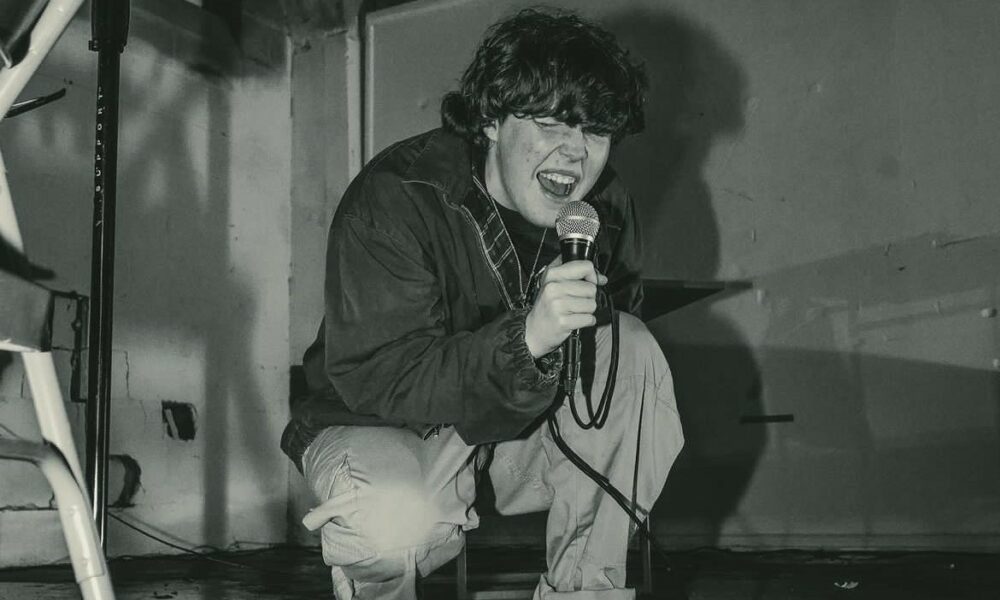

Today we’d like to introduce you to Grayson Michael Harper.
Hi Grayson, we’d love for you to start by introducing yourself.
I’ve said this a bunch, but I wrote a lot as a kid. I had a million different ideas of what I could do with my life, but I always wanted to write. There was one project in particular that really solidified this for me: in fourth grade, I used my dad’s work-issued computer to write a novel about a boy going to an alternate universe. I don’t remember his name or what he looked like, but I do remember that I was channeling myself through him. He looked like what I wanted to look like, talked how I wished I could talk, and, most importantly, he escaped into a world that was his own. The rush that it gave me to live through him was something that truly devoted me to the craft of writing. I got older and kept building on my work, shifting from fictional stories to prose pieces to poetry about being young, queer, and lost. In middle school, I clung onto poetry like a life vest. I had been outed to my parents as queer, and it scared me into being super secretive with my gender identity. A few of my friends knew (to differing extents), and even that freaked me out. I would often write about this, and as much as I enjoyed the intimacy of creation in response to my own growth, it also felt isolating because I had nobody to share it with.
Once I was accepted into the Creative Writing department of my current arts-centered high school, things started to change. I went into it hesitantly, definitely still afraid of being “found out” by my family before I could tell them myself. It was easier with the support of my first long-term friends who were also trans, and after I came out, my writing shifted slowly from being ashamed to being elated with who I was becoming. It felt liberating to have the choice, to say it for myself, to own my identity. As I got more comfortable with myself, I also got more comfortable with showing myself to other people, which was (and still is) amazing. I did things that I never would have thought of doing, like performing my spoken word work. This evolved into me finding the courage to perform my own music (I had been writing songs since I was very young), and then finally getting the idea to release my writing in collections. I actually found that there was a cool symbiotic relationship between performing and vending my work at events; I realized that these two acts sort of fueled the success of each other.
It took a while, but I settled into the groove. I got a website for sales up & running, got the opportunity to be a returning performer for the Happening at The Orange Show, and vended my first Zine Fest Houston with the release of my latest collection in November.
And speaking of my latest collection, I definitely think that the greatest thing I have ever done in regards to my creative endeavors is nurture a space where other trans people want to connect with me. With the release of “Stitch & Strap: A Collection of T4T Poetry,” I got to talk with a lot of trans people who would tell me that my work is important to them, makes them feel seen, and a million other nice things – which I love more than anything. I love hearing that what I create means something to people, especially my trans siblings.
We all face challenges, but looking back, would you describe it as a relatively smooth road?
There’s definitely been a few! I’d say my biggest struggle starting out was forming a networking pool. I’m getting better about talking to people that I don’t know, but it used to really freak me out. I was lucky to start with a few friends who had already established themselves pretty well as creatives, for sure. And that’s another thing, too: some of my friends were already creating things that people liked and doing the cool stuff that I wanted to do but felt like I couldn’t. I compared myself to them a lot of the time, thinking that my work wasn’t as interesting as their photography or visual art. I still struggle with this sometimes, but I’ve learned that all of our art is important in its own way. My friends, being such amazing artists has truly pushed me further with every step of the process.
It’s also just hard being an openly transsexual creative sometimes – it can be hard to be an openly transsexual anything, really. I remember when I first started vending Stitch & Strap, people would come up and ask what “T4T” means. A lot of people still do this, actually. And that wasn’t the problem at all; I was actually happy to talk about the definition of “trans-for-trans,” regardless of how simple I had to make it. What always kind of makes me flatten is when I explain to someone who I assume is just curious, and then they just give me a weird look and silently walk away. It just feels like I’m doing the work to help somebody understand something, and they just turn their nose up at me. It sucks, but it happens.
Thanks – so, what else should our readers know about your work and what you’re currently focused on?
In another interview I did, the headline is “Meet Grayson Michael Harper: Transsexual Creative & Radical Poet.” I like this title, and I’ve really taken to it. I think that it really speaks to what I do: my transsexual identity makes creation and resistance second nature to me, and I channel all of that into my poetry. As for my work itself, I would say that my most important mission in writing is keeping it accessible. Poems that are super complicated with form, syntax, etc., are always amazing to read, but I only think that because I’ve been taking classes about how to analyze poetry & prose for the past four years. But I’m lucky to have had that space; not everyone can do that. With poetry being such an amazing way to express feelings and find liberation, I think that having work which includes everybody in that experience is essential. Not only that, though; I also think that we as writers should start opening up wider access to things like workshops and classes so that those who take interest in more complex poems have the full ability to learn and immerse themselves in the craft without having to worry about the cost that usually comes with those things. Money should never restrict the experience of art and creation. This is why I’ve been working on organizing a free poetry & prose workshop series in Houston, and it’s a project that I’m super excited about.
Let’s talk about our city – what do you love? What do you not love?
I love a lot of things about Houston. The thing that I probably love most is the art. I could say the people, but almost all of my friends are people that I have connected with through art events, art school, and other stuff that brings groups of people together to enjoy expression. My main examples would be performance art events like the Happening & Coextensive Collective’s events, the many Temp Tats Art Markets, and local shows. We’ve got a crazy good art scene and an insane music scene here in Houston, and being around that sort of creation all the time is what keeps me going. As for what I like least, this is kind of a dumb answer, but probably driving. I feel like it’s such a Houston thing to say that I hate driving in our city, but I do. So do all of my friends, to be honest. I love going on drives and seeing places around town that are important to me, but main roads and freeways are an actual death trap in Houston sometimes.
Pricing:
- Stitch & Strap is sold on a sliding scale from 7-10 dollars, meaning you can pick your price in that range.
- This Collateral Body is also sold on a sliding scale, except it ranges from 5-10 dollars.
- My stickers are free with purchase, or $2 for a small sticker / $3 for a bumper sticker.
- All of my prints are $3.
Contact Info:
- Website: graysonmichael.bigcartel.com
- Instagram: @gmhriot
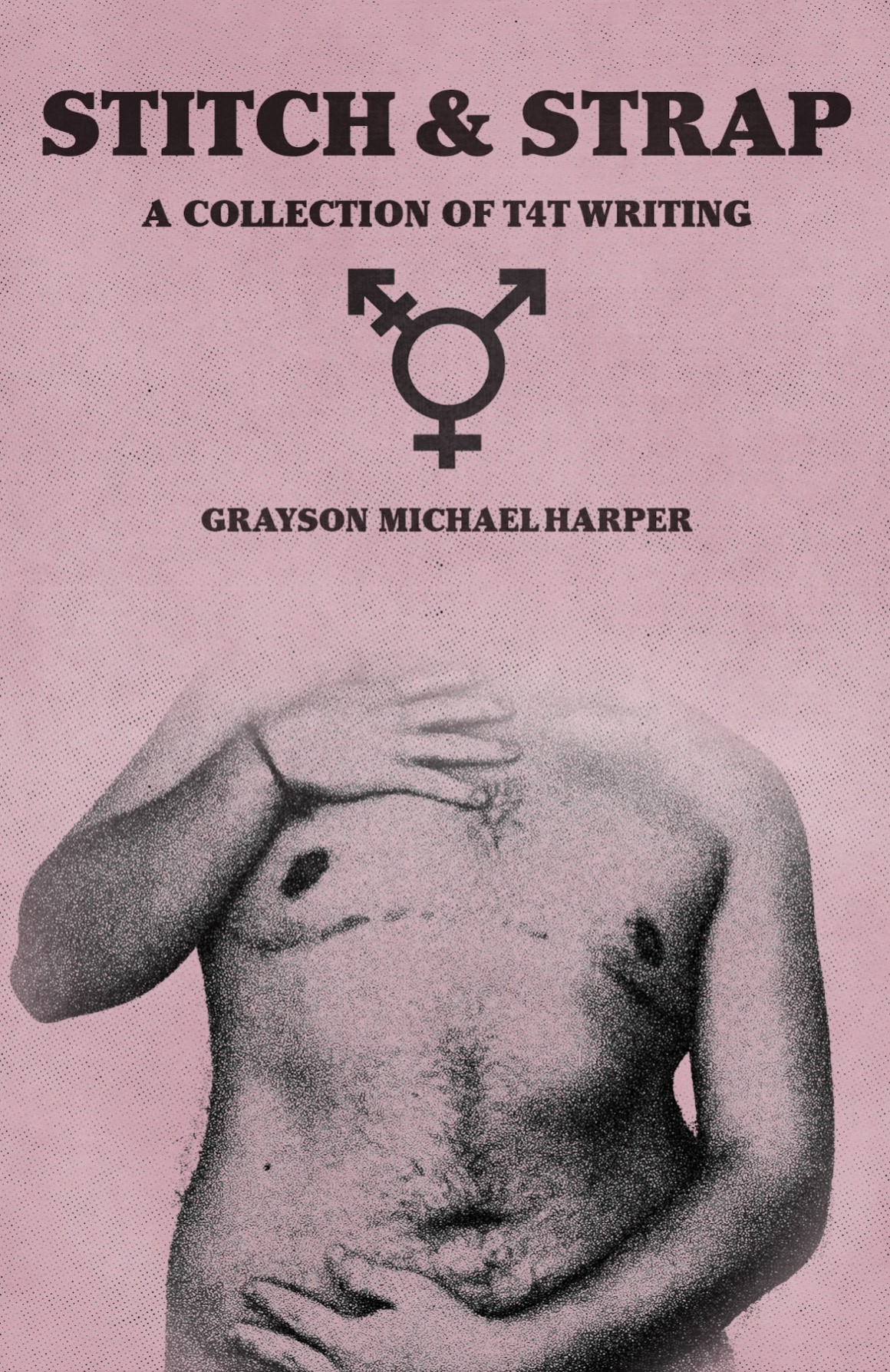
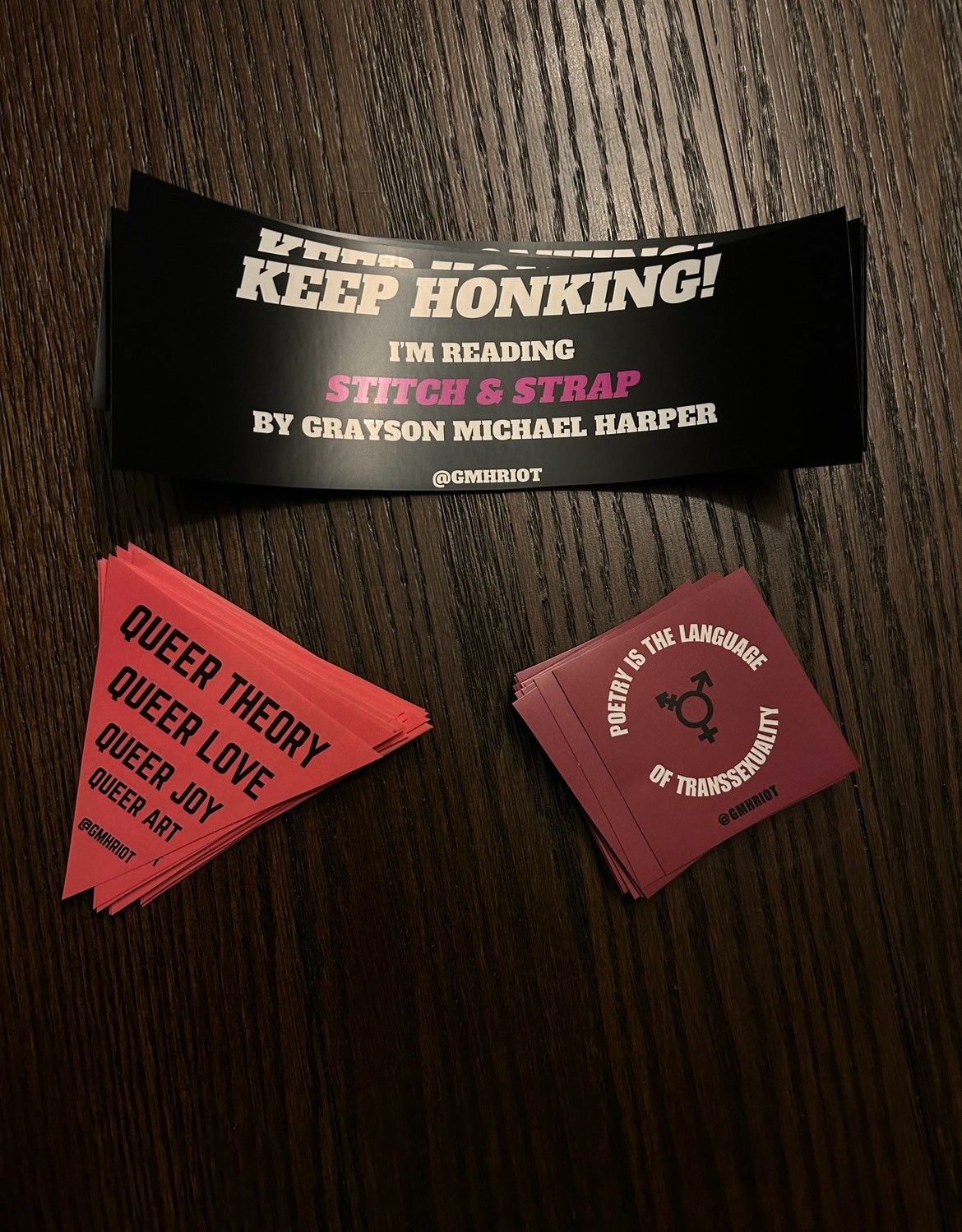
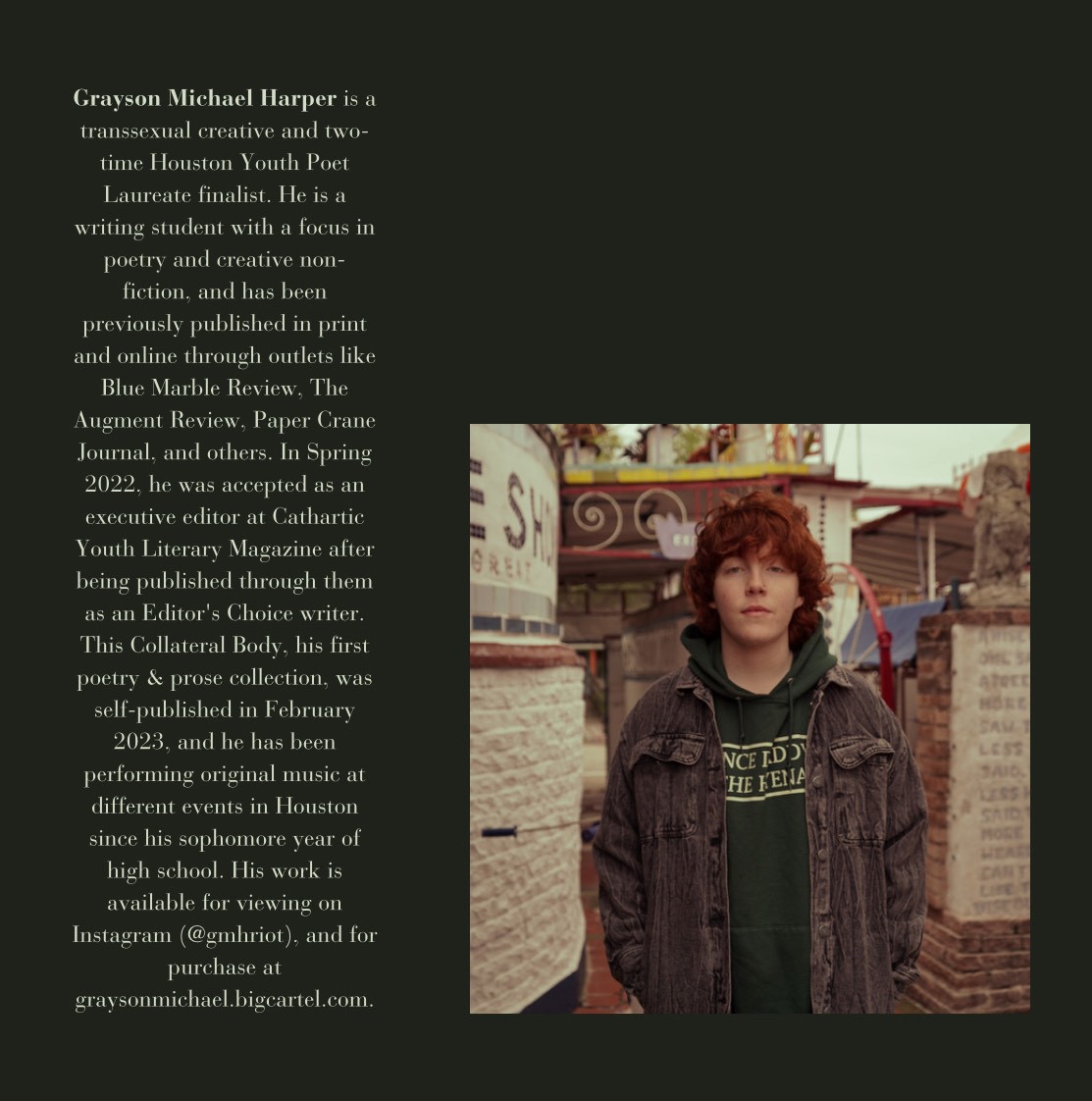
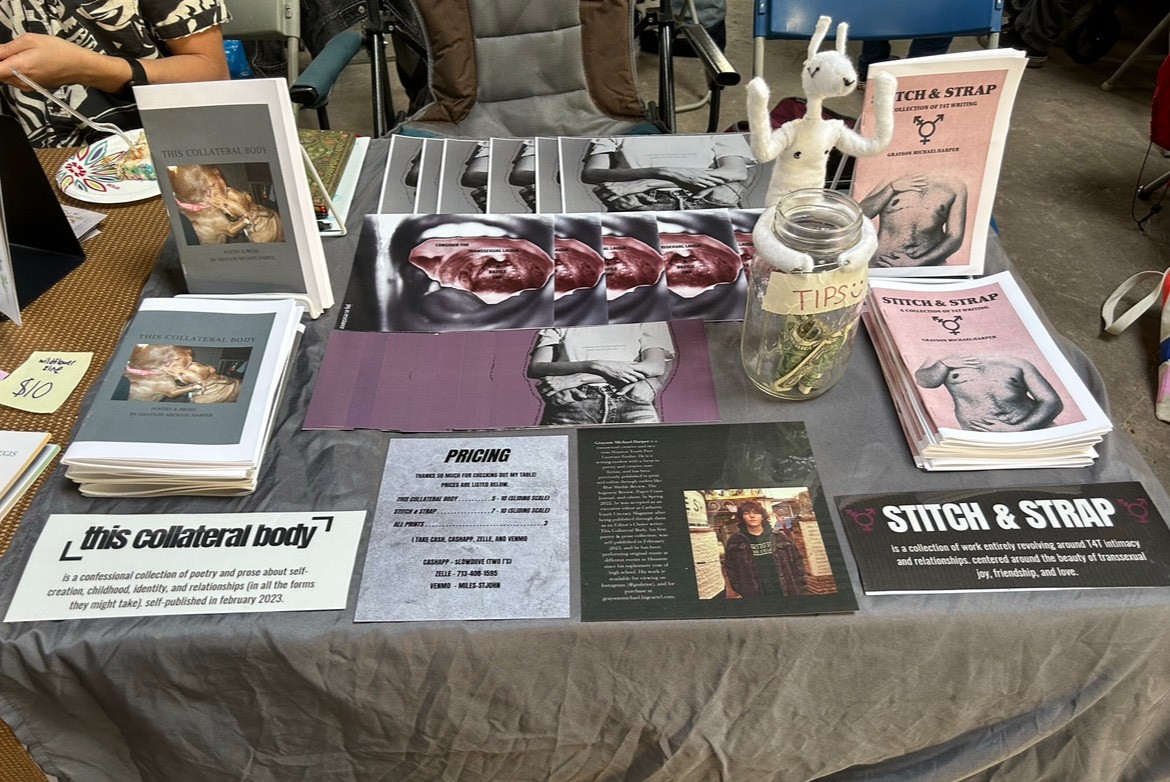
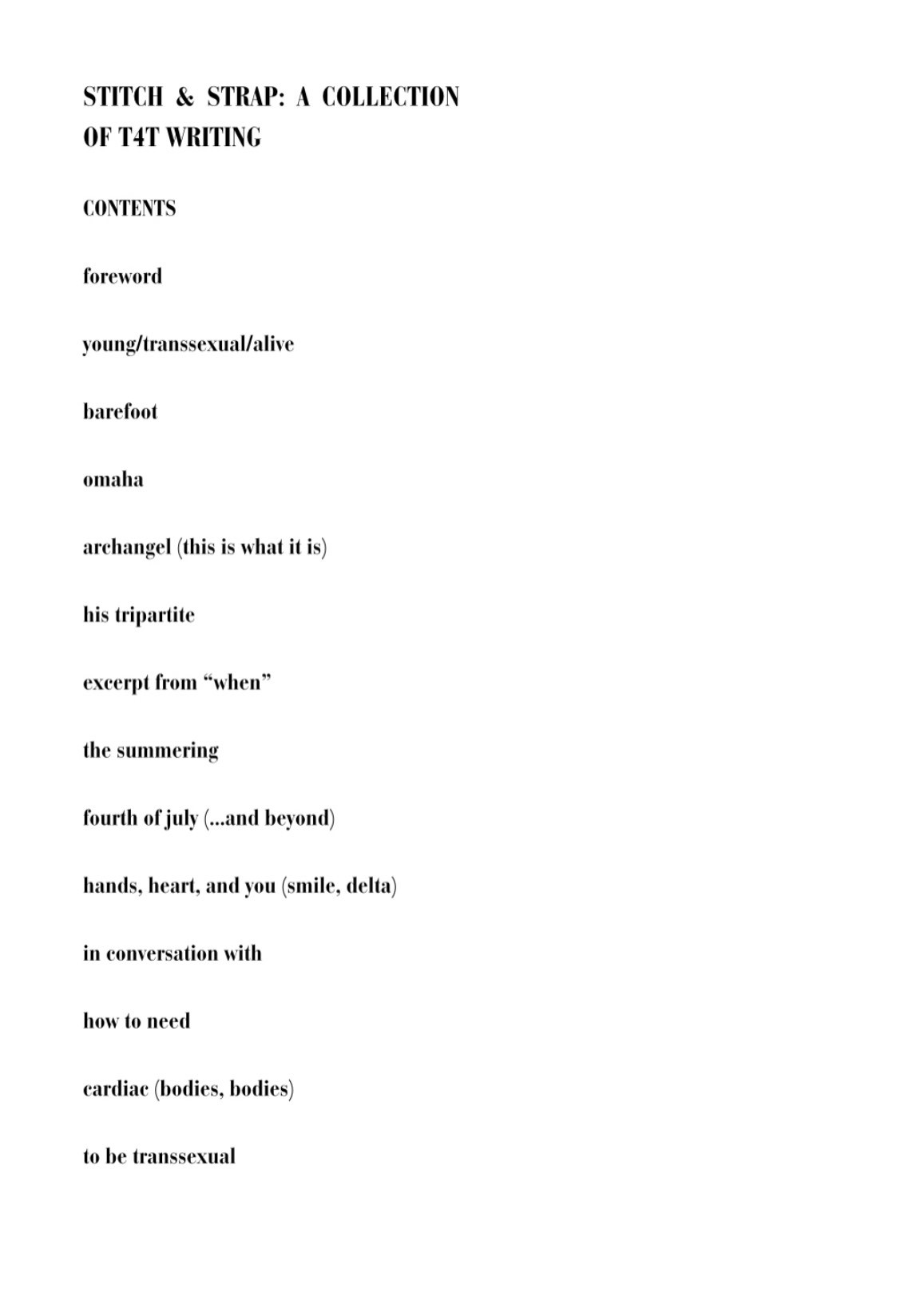
Image Credits
Miles St. John










